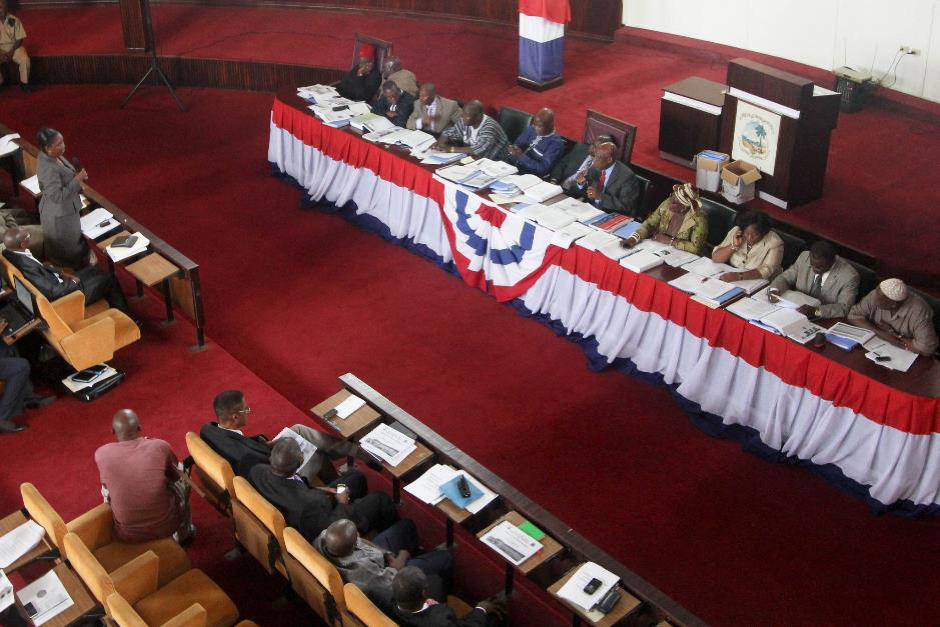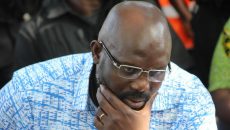After two successive presidential elections in 2011 and 2017, Liberia has enjoyed 15 years of uninterrupted peace, which makes one wonder whether the perpetrators of the worst forms of human rights violations are now immune from prosecution.
In an effort to investigate, determine the truth, identify the root causes of the civil conflict, and to determine those responsible for the commission of odious crimes, the National Legislature established the Truth and Reconciliation Commission in June 2005. The TRC’s mandate included: documentation and investigation of the massive wave of human rights violations that occurred in Liberia during the 1979– 2003 period, identification of victims and perpetrators of the conflict, and creation of a forum to address issues of impunity.
The commission fulfilled its mandate and collected over 22,000 written statements, conducted several dozen personal interviews, and collected over 500 live public testimonies of witnesses, actors, perpetrators, and direct victims from the 15 political sub-divisions of Liberia and the diaspora.
In the end, the commission submitted a comprehensive report to the people of Liberia, the government, and the international community after a little over three years (2006-2009) of work with financial support from Liberian taxpayers, the United Nations, the European Union, and other generous governments.
In its final report, the commission recommended the establishment of an extraordinary criminal tribunal, prosecution of war criminals, public sanctions for some officials, reparations to victims, amnesty, and a palava hut peacebuilding mechanism, dialogue, and national reconciliation.
Nine years since the TRC submitted its report, successive governments have taken little or no action to prosecute war criminals. Captivatingly, other countries have made tremendous strides to end impunity. At the end of a turbulent civil conflict (1991-2002), Sierra Leone, a country that borders Liberia, established a Special Court in 2002 which indicted, convicted, and sentenced dozens of perpetrators who committed, aided, and abetted the worst crimes against humanity in Sierra Leone, including a former Liberian President Charles Ghankay Taylor.
The world witnessed a new era when the United Nations Security Council in November 1994 passed a resolution for the establishment of an International Criminal Tribunal for Rwanda with the sole purpose of prosecuting perpetrators of the 1994 genocide. The tribunal indicted, convicted, and sentenced scores of perpetrators to prison before it concluded its mandate in 2012.
However, Liberia has not made any significant progress in establishing a specialized court to prosecute war criminals. On October 18, 2018, the local media in Monrovia quoted Foreign Minister Gbezonghar Findley as calling for a referendum to determine the establishment of a war crimes court.
Findley’s statement is a flagrant outrage to victims (some of whom are in mass graves) of the civil conflict and their families who yearned for justice every day, while they see former warlords occupying lucrative positions of trust in the country. While the raison d’etre of the Foreign Minister’s statement is ambiguous, the constitution empowers the National Legislature to constitute courts inferior to the Supreme Court, including specialized courts which are deemed necessary for the proper administration of justice.
In September 2018, when Weah addressed the General Assembly of the United Nations, he reaffirmed his nation’s commitment to the values of the U.N., which include: international peace, security, human rights, and justice.
To ensure that human rights and justice are entrenched in Liberia, Weah must urgently establish a specialized criminal tribunal in order to prosecute those who committed the worst forms of atrocities, end the culture of impunity, and show that the best way to promote and protect human rights is to prosecute people who are responsible for the 14-year civil conflict.
It is important to note that among former Presidents Taylor and Sirleaf and current President Weah, the only leader who could weather the storm to establish such a court in Liberia is Weah, simply because there has not been evidence explicitly or implicitly linking Weah to the country’s bloodbath, unlike Sirleaf and Taylor, who were indicted by the TRC report for financing, aiding, abetting, and committing atrocities during the conflict.
Weah’s failure to establish the court will be a contradiction of his much-touted Pro-Poor Agenda for Prosperity and Development, which he launched on October 27, 2018. Pillar 3 calls for a more peaceful and unified society that enables economic transformation and sustainable development through ending fragility and the root causes of conflict, ensuring access to justice, the rule of law and human rights and complying with international, regional, and human rights standards.
Weah can eliminate the culture of impunity in Liberia by establishing a specialized criminal tribunal which will prosecute, convict, and punish former warlords who are responsible for the worst atrocities the country has ever experienced. The benefits that come with prosecuting and subsequently convicting former warlords is that the victims and their families will appreciate justice and it will curb future mayhem.
Finally, the establishment of a war crimes court is not at the discretion of Weah; it is a constitutional and statutory imperative. Morally, Weah owes his 2017 electoral victory to the more than half a million young people who voted him to power, only because they saw in him an indomitable will and agenda to prosecute former warlords who gifted them a miserable and poverty-stricken childhood.
Failure to expeditiously establish the court and subsequently prosecute former warlords who planned and executed the 14-year turmoil in Liberia will only reveal that Weah’s administration is craving for the nation’s reverse to anarchy. Weah will never appreciate such anarchy, because he is so obsessed to reform and rebuild Liberia from abnormality to prosperity, according to his Pro-Poor Agenda.
Featured photo by Ida Reeves



